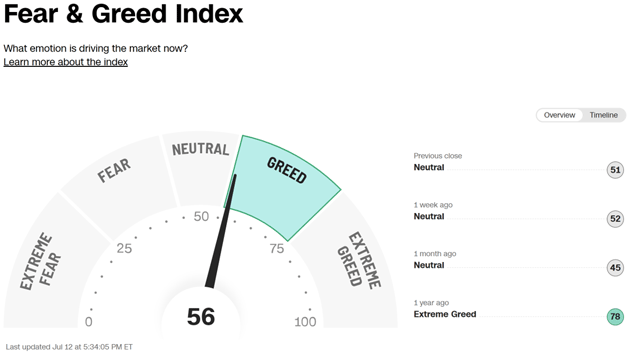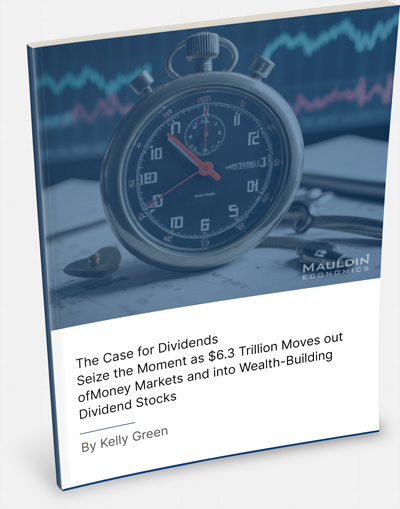
Get Your Cash Ready for Earnings Season Bargains
-
 Kelly Green
Kelly Green
- |
- July 17, 2024
- |
- Comments
It’s earnings season yet again. And I think this one is going to be more down-to-earth than the ones we’ve had over the past year.
Earnings season is roughly a six-week period when companies announce their quarterly earnings. It typically begins two weeks after the quarter ends. So, each “season” kicks off in the middle of January, April, July, and October.
During this time, huge amounts of financial data are dumped into the market. And most companies host earnings calls with prepared remarks from their management and Q&A segments.
The management’s tone on the call is just as important as the financial numbers. Joining the call or reading the transcript afterwards can give us different insights. I especially look for any signs of hesitation or comments that don’t line up with previous calls or press releases.
For the past few quarters, I saw many examples of investors taking any positive piece of news and running with it. Negative news was routinely swept under the rug.
As I said above, I expect a more logical reaction to earnings from investors. If I’m right, the Q2 reports will be worth watching.
Generally, earnings from the big banks set the tone for the season.
Last Friday, JPMorgan Chase (JPM), Citigroup (C), and Wells Fargo (WFC) all reported. We also got the consumer price index (CPI) and producer price index (PPI) releases as well.
Greed Will Not Be Across the Board
After the banks reported and the inflation numbers were released, investor sentiment was sitting in the “greed” territory, but just barely.

Source: CNN
We were just one notch above 55, the dividing line between neutral and greed. This is very different than the extreme greed value we saw last year at this time. To get a better idea, we have to look at what exactly happened last week.
The tone had been set—cautiously optimistic.
The market has now priced in high odds that we’ll see a rate cut in September. I’ve talked before about how this will be an important turning point for the market. It will be the catalyst for the “correction” everyone says must happen.
I don’t think so. I think we will get a sector rotation and not a broad market correction.
And that’s why it’s so important to be ready for what this earnings season throws our way.
|
Use This Mixed Bag to Your Advantage
The three big banks named above all saw their stocks tick down on Friday. This happened despite beating analyst expectations on various earnings numbers. Investors did not allow some good numbers to overshadow their concerns with other numbers—specifically, lower net interest income.
Like what you're reading?
Get this free newsletter in your inbox every Wednesday! Read our privacy policy here.
-
Consider taking gains on tech positions, or any stock that is trading at a high P/E.
The price-to-earnings ratio (P/E) is a quick way to tell if a stock is trading at a reasonable valuation. The lower the number, the cheaper the stock valuation. The 10-year average P/E for the market is 23.8. This means investors are will to pay 23.8 times annual earnings for shares.
If you have some big gains on stocks with a P/E above 30, you might want to think about taking some of them off the table. If you’re not convinced it’s time to sell, maybe sell half of a position to lock in some gains.
-
Have cash available to grab some deals.
If we get a sector rotation, investors will start to recall the safety of utilities, consumer staples, and other boring dividend stocks. Any hint of bad news through this earnings season might be your last chance to buy at a good price—and secure a higher yield—before the anticipated rate cut in September.
You should also update your watchlist today. I always have a watchlist of stocks I’d love to own if specific things happen. It could be a change in a company’s financials or comments from its management. Sometimes, I’m just looking for the stock price to drop so I can get a better yield.
This is the time for those things to happen. And you can’t be prepared unless you know what you’re looking for.
Every earnings season is an opportunity to use data and investor sentiment to our advantage. The one we’re in now is going to be important, so make sure you’re paying attention.
|
For more income, now and in the future,

Kelly Green
P.S. Don’t forget I’m presenting at the virtual MoneyShow next week. If you want to hear about my strategy and my favorite tickers, you can join me absolutely free by clicking here.

 Kelly Green
Kelly Green
